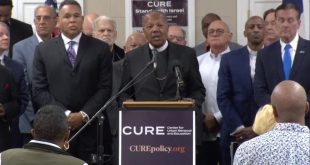 For liberals, reducing poverty means more taxpayers’ money…down the drain. What about Republicans?
For liberals, reducing poverty means more taxpayers’ money…down the drain. What about Republicans?
National Review on what the presidential candidates have in mind:
“[I]f Democrats are predictably doubling down on the failed policies of the past, what do Republicans offer as an alternative? Interestingly, for a party with a reputation for indifference toward the poor, the major Republican presidential candidates have actually had quite a bit to say on the issue. Florida senator Marco Rubio offers perhaps the most detailed and well-thought-out set of policy proposals. Rubio would consolidate most of the more than 100 current federal anti-poverty programs and send the funding for them back to the states as block grants. Unlike a similar but much smaller plan put forward by Representative Paul Ryan of Wisconsin, Rubio’s block grants would come with few strings. States would be free to use the money in any way that they chose, as long as the spending is consistent with the broad purpose of the programs they are replacing. A state could not use the funds to reduce taxes on businesses, for instance. Within those limits, states would be free to be, in Justice Brandeis’s famous phrase, ‘laboratories of democracy,’ experimenting with a wide variety of innovative approaches to fighting poverty.”
Gov. Scott Walker called liberal bureaucrats “poverty pimps” but hasn’t “suggested any alternatives or specific reforms to the current system,” according to NR.
How about these alternatives and specifics: graduate high school, work full time, get married, stay married, and have children after you get married.
The moral component of decreasing poverty doesn’t generate many headlines. Liberals stay in office by stoking racial resentment, class envy, and covetousness. Acknowledging that people are accountable for how they live their lives doesn’t sell.
Star Parker on one policy Republicans can make happen:
“Of course, many factors drag blacks down economically. But making one very straightforward policy change would have immediate wealth-creation benefits for blacks and all low-income Americans.
“It involves something I’ve written about many times: personal retirement accounts.
“A 2011 Pew study on wealth gaps among ethnic groups showed that, in 2009, 45 percent of whites and 30 percent of blacks had 401(k) and thrift savings account. Some 35 percent of whites and 11 percent of blacks had IRA and Keogh accounts.
“One can argue that with far less income available, blacks don’t have the resources to invest long term in these wealth-building accounts. And because relatively few do invest, blacks tend to have less understanding of the plans, creating discomfort and bias against doing it.”
 CURE News and Clergy Blog News and Commentary for Christians
CURE News and Clergy Blog News and Commentary for Christians



